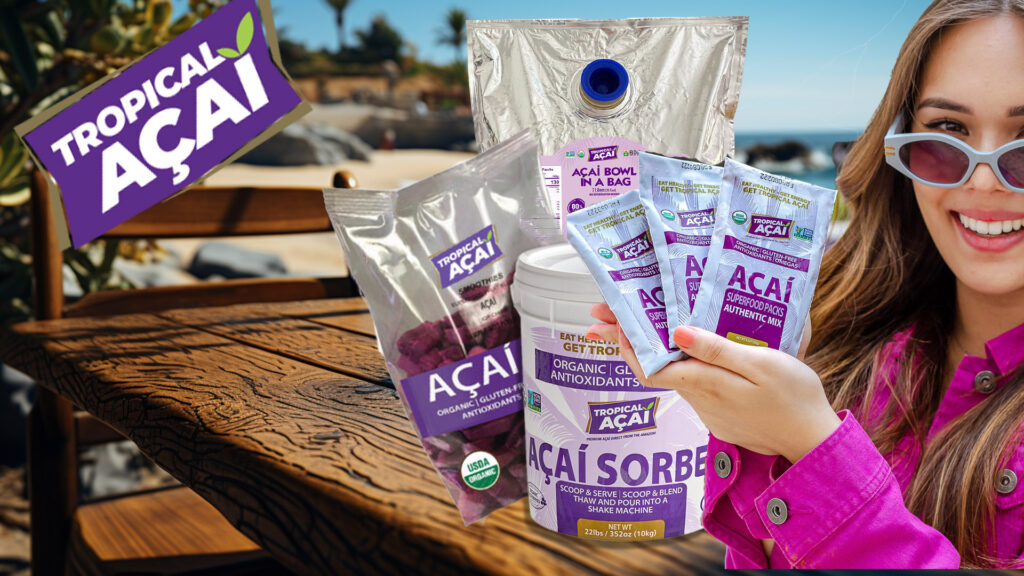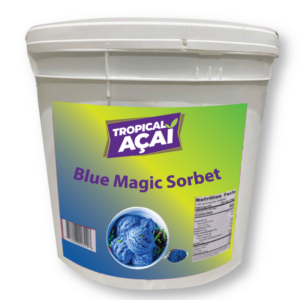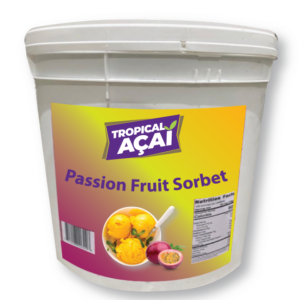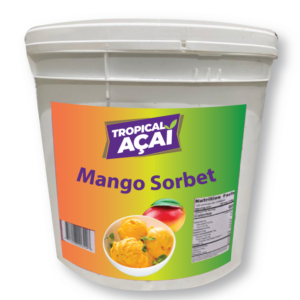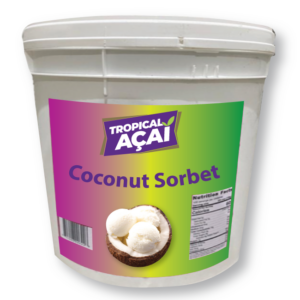Introduction
Understanding the Acai Berry
Acai berries originate from the Amazon rainforests and hold a special place in the superfood realm. They are rich in antioxidants and provide an array of health benefits. These fresh berries have a short shelf-life, leading suppliers to freeze them to preserve their nutritional value.
The taste of acai berries is often described as a cross between wild berries and dark chocolate. This unique flavor and its benefits make them popular in smoothie bowls, desserts, and health drinks.
Due to their origin and perishable nature, accessing fresh acai berries outside the Amazon is nearly impossible. This circumstance leads us to the popular alternative: frozen acai packets.
Why is Acai Mostly Sold Frozen?
Acai berries are highly perishable, and their nutritional value deteriorates rapidly post-harvest. This deterioration makes it essential to freeze the berries shortly after harvest. The freezing process helps retain the nutritional profile of the berries, extending the acai shelf life and making them accessible worldwide.
Frozen acai packets are a convenient way to enjoy the benefits of these super berries without compromising their quality. These packets contain pureed acai, ready to be blended into smoothies or defrosted for other uses.
Frozen acai is available in various forms, like Organic Non-GMO Acai and Acai shelf-stable products. Companies like Tropical Acai specialize in providing premium quality acai products, making them a go-to choice for health enthusiasts.
Acai Shelf Life: An In-depth Analysis
How to Tell if Your Acai is Fresh
Knowing if the acai is fresh is essential for a customer or store owner interested in frozen acai products. The quality of frozen acai products, like the vibrant purple color, can indicate freshness. Frozen acai should maintain this rich color throughout the freezing process. A significant change in color, such as browning, could indicate spoilage or sub-optimal storage conditions.
Fresh acai also has a pleasant, mildly fruity scent, often preserved even in frozen acai products. An unpleasant or off-putting smell might suggest that the product is not fresh. Pay attention to these details to ensure you get the best quality acai products.
The texture of frozen acai products can also indicate their freshness. While frozen acai is typically firm due to freezing, it should quickly achieve a smooth and creamy consistency when defrosted or blended. It might not be fresh if the product feels overly mushy or slimy. Attention to these characteristics can ensure you’re consuming or selling fresh and high-quality acai products.
Factors That Influence Acai Shelf Life
Several factors influence the shelf life of frozen acai products. Storage conditions are a primary factor. Frozen acai products should be stored consistently at low temperatures, preferably in a freezer, to maintain their quality and extend their shelf life.
The time it takes for the product to go from harvest to freezing also significantly influences the shelf life. Companies like Tropical Acai take great care to ensure the acai berries are frozen quickly after harvest, which helps retain their nutritional value and extends their shelf life.
Transport and distribution conditions also play a significant role. During these stages, maintaining the frozen state of the acai products is crucial for preserving their quality and shelf life. If acai products partially thaw during transit, it could impact their shelf life negatively.
The type of acai product also matters. For instance, acai sorbets or shelf-stable acai products might have different shelf lives than pure frozen acai packets. Understanding these factors can help you make informed choices about buying and storing frozen acai products.
Consequences of Consuming Expired Acai
While consuming slightly past-date acai may not cause immediate harm, it’s best to avoid it. Consuming spoiled or expired acai could lead to a loss in nutritional value and compromised taste. This loss can impact your health and the quality of the acai dishes you prepare.
More severe consequences could include foodborne illnesses. Expired acai could lead to stomach upset or more severe health issues depending on the degree of spoilage. Therefore, it’s crucial to keep track of the shelf life of your acai products and ensure they’re consumed within their expiration date.
As a store owner, selling expired acai could negatively affect your store’s reputation. Therefore, it’s equally crucial for businesses to manage their acai inventory effectively and ensure their customers always receive fresh and high-quality products.
Understanding the Labeling on Acai Packaging
Most frozen acai products come with labels providing important information about the product. This information typically includes the production date, expiration date, and storage instructions. As a customer or store owner, understanding this information can guide you in storing the product correctly and consuming or selling it within its shelf life.
For store owners, particularly those dealing with wholesale acai, keeping a record of your inventory, including purchase and expiration dates, can be beneficial. This practice can prevent wastage from expired products and ensure that your customers always get fresh, high-quality acai products.
Proper Storage of Frozen Acai Packets
Specific guidelines can ensure nutritional integrity and taste preservation when storing frozen acai packets. Firstly, always store acai packets in a freezer below 0 degrees Celsius or 32 degrees Fahrenheit. This temperature range helps keep the acai frozen and prevents it from spoiling.
When you remove a packet from the freezer, aim to use it immediately. If you’re not using the entire packet, return the unused portion to the freezer promptly. Always avoid leaving the packets at room temperature for an extended period, which can lead to thawing and spoilage.
Tropical Acai recommends these best storage practices for organic, non-GMO, frozen acai packets to ensure they remain fresh, delicious, and nutritionally rich for as long as possible.
Optimal Storage Conditions for Acai
Optimal storage conditions for frozen acai packets require a consistently cold environment, i.e., your freezer. Ensure that the temperature inside your freezer does not fluctuate, as it can affect the quality of your acai packets.
In addition, it’s crucial to keep the acai packets sealed until you’re ready to use them. Exposure to air can lead to freezer burn, which can negatively affect the texture and taste of the acai.
Common Mistakes in Acai Storage
One common mistake is storing acai packets in the refrigerator rather than the freezer. Acai must remain frozen to retain its texture, taste, and nutritional value.
Another mistake is frequently thawing and refreezing acai packets. This practice can degrade the product’s quality, leading to a loss of flavor and nutritional value.
Finally, overstuffing the freezer can lead to inconsistent temperatures and potentially compromise the quality of stored items, including your acai packets.
Effects of Temperature Fluctuations on Acai
Temperature fluctuations can have detrimental effects on frozen acai packets. When the temperature in your freezer fluctuates, it can cause the acai to partially thaw and refreeze, leading to a change in texture and potential loss of flavor and nutrients.
Furthermore, frequent temperature fluctuations can also reduce the overall shelf life of the acai packets. Therefore, it’s crucial to maintain a consistent freezing temperature to preserve the quality of your acai.
Can You Refreeze Acai? Unveiling the Truth
A common question among consumers is whether or not they can refreeze acai after it has been thawed. This question often arises when consumers have more thawed acai than they can use at once. The short answer is that refreezing thawed acai is generally not recommended, and several reasons exist behind this recommendation.
The first concern involves texture. Acai changes texture when frozen and then thawed due to the ice crystals forming during freezing. When acai is refrozen, the size of these ice crystals can increase, leading to a gritty or grainy texture in the product. This is far from the smooth, creamy texture consumers love in their acai bowls or smoothies.
Secondly, there’s the matter of taste. Refreezing acai can lead to a muted flavor profile. This is because the freeze-thaw cycle can lead to moisture loss through ice crystal evaporation, also known as freezer burn. This moisture loss can affect the taste of the acai, making it less vibrant.
Lastly, there’s a potential concern over nutritional value. While refreezing doesn’t cause a significant loss of nutrients, the quality of the acai may still suffer due to the reasons above.
So what should you do if you have more thawed acai than you can use? One option is to blend the remaining acai with some liquid and freeze it in ice cube trays. These acai cubes can be used in smoothies without the same texture and taste issues as refrozen acai. Alternatively, you can add the thawed acai to yogurts, oatmeal, or smoothies and consume it on the same day.
Remember, optimal enjoyment of Tropical Acai’s organic, non-GMO, frozen acai packets involves consuming the product shortly after it’s thawed.
Acai Shelf-Stable: The Process of Making Acai Long-Lasting
Like other fruits, Acai berries have a natural shelf life that can be extended through various preservation methods. One of the most popular ways to extend the shelf life of acai berries is by making them shelf-stable. This process involves preserving the berries stored at room temperature without compromising their quality or safety.
The process starts with quality sourcing. Companies like Tropical Acai ensure they use organic, non-GMO acai berries, which are then handled with care to maintain their nutritional integrity.
How Acai is Made Shelf-Stable
The primary method of making acai shelf-stable is through pasteurization. Pasteurization is a process that involves heating the acai berries to a specific temperature to kill off any bacteria or pathogens. This helps to extend the acai’s shelf life while ensuring its safety for consumption.
After pasteurization, the acai pulp is often pureed and packaged in airtight containers. These steps help to create an environment that prevents the growth of bacteria, thus making the acai shelf-stable.
Preservation Techniques for Acai
In addition to pasteurization, other preservation techniques can also be used to make acai shelf-stable. These may include dehydrating the acai berries or using preservatives to prolong the shelf life.
While these preservation techniques can extend the shelf life of acai, it’s essential to note that they can sometimes affect the taste and nutritional profile of the acai. Therefore, it’s essential to choose acai products from reputable brands like Tropical Acai that prioritize the quality of their acai and use preservation techniques that maintain as much nutritional integrity as possible.
Shelf-Stable Acai vs. Frozen Acai: The Pros and Cons
Both shelf-stable and frozen acai have their own sets of pros and cons. Shelf-stable acai, for example, offers the convenience of not needing to be stored in a freezer. This makes it an excellent option for individuals who lack sufficient freezer space or want to take their acai on the go.
However, shelf-stable acai might not deliver the same fresh taste as frozen acai. The preservation techniques can alter the flavor, and some nutrients may be lost.
On the other hand, frozen acai maintains more of the acai berry’s original taste and nutritional profile. However, it requires freezer storage and has a shorter shelf life than shelf-stable acai.
Ultimately, the choice between shelf-stable and frozen acai comes from individual preferences and lifestyle needs.
The Role of Packaging in Acai Shelf-Stability
Packaging plays a significant role in the shelf stability of acai. The proper packaging can protect the acai from exposure to air, light, and bacteria, which can hasten spoilage.
Airtight packaging is crucial for shelf-stable acai to prevent the growth of bacteria, while opaque packaging can protect the acai from light exposure. Similarly, for frozen acai packets, packaging that offers a tight seal is essential to prevent freezer burn and protect the quality of the acai.
Tropical Acai offers premium quality acai products in thoughtfully designed packaging that aids in preserving the quality and extending the shelf life of their acai.
Wholesale Acai Products from Tropical Acai LLC
There are several reasons to choose Tropical Acai LLC as your wholesale acai provider. First, their commitment to quality is unparalleled. Their acai products are made from organic, non-GMO acai berries, ensuring you’re offering your customers the best.
Second, their range of products allows businesses to cater to various customer needs and preferences. From acai bowls to smoothies, there’s a product for every acai enthusiast.
Finally, their dedication to sustainability means that when you choose Tropical Acai LLC, you choose a brand that values and respects the environment. This can be a significant selling point for customers who prioritize sustainability in their buying decisions.
Unpacking the Quality of Tropical Acai LLC Products
Tropical Acai LLC’s commitment to quality begins with its acai berries. They ensure that their berries are sourced from sustainable and organic farms. The berries are then processed in a way that preserves their nutritional integrity, resulting in a product that is not only delicious but also packed with health benefits.
Their frozen acai packets, for instance, are made from 100% pure acai pulp with no added sugars or preservatives. This ensures that the natural flavors and nutrients of the acai berries are preserved, providing a superior product for customers.
Tropical Acai LLC’s Commitment to Sustainable Sourcing
Sustainability is at the core of Tropical Acai LLC’s operations. They understand the importance of preserving the Amazon rainforest, so they source their acai berries from sustainable farms that use environmentally friendly farming practices.
In addition, they strive to reduce their environmental impact by minimizing waste in their production process and using recyclable packaging materials. Businesses can offer quality acai products and contribute to environmental conservation by choosing Tropical Acai LLC.
How Tropical Acai LLC Ensures the Longevity of Their Acai Products
Ensuring the longevity of their acai products is a crucial priority for Tropical Acai LLC. They achieve this through their meticulous processing and packaging techniques. Their acai berries are processed and frozen shortly after harvest to lock in the nutrients and flavors. They are then packed in airtight packages to prevent exposure to air and bacteria, which can lead to spoilage.
Additionally, they provide clear instructions on the storage and handling of their products, helping businesses and customers alike maintain the quality of the acai for as long as possible.
Buying and Using Frozen Acai: A Comprehensive Guide
Introducing acai into your routine doesn’t have to be a daunting process. Let’s delve into the ins and outs of buying and using frozen acai products.
Where to Find Quality Frozen Acai
The journey to enjoying acai begins with finding the right supplier. Tropical Acai LLC offers a range of premium quality acai products, including frozen acai packets derived from organic, non-GMO acai berries. The company ensures a fresh and genuine acai taste in every serving, making it a top choice for acai lovers.
For businesses, Tropical Acai LLC also provides a wholesale acai option. Whether you manage a restaurant, a juice bar, or a health food store, their wholesale acai service ensures you always have top-tier acai products for your customers.
Online platforms also serve as avenues to get quality acai products. However, it’s crucial to research and choose reputable online vendors to guarantee the authenticity and quality of the acai products you’re purchasing.
Reading Acai Labels: What to Look For
The acai label tells you a lot about the product you’re about to buy. High-quality acai products, like those offered by Tropical Acai LLC, have minimal ingredients, with acai berries as the prime ingredient. The fewer the ingredients, the better.
Avoid products with artificial additives, colorings, or excessive sugar. These ingredients may alter the natural taste and health benefits of acai. It’s also beneficial to look for certifications such as USDA Organic and Non-GMO Project Verified. These labels assure you that the product is organic and non-genetically modified.
Remember, an informed buyer makes better choices. Understanding what each label signifies will help you choose the best acai products for your needs.
How to Use Frozen Acai: Quick and Tasty Recipes
Acai is versatile and can be incorporated into a variety of dishes. You can create an acai bowl by blending a Tropical Acai LLC frozen acai packet with your choice of fruits and topping it with granola, fresh fruits, and a drizzle of honey for a quick, nutrient-packed breakfast.
Acai smoothies are another crowd-pleaser. Blend a frozen acai packet with fruits, yogurt, or milk for a refreshing, nutrient-rich drink. It’s a flexible menu item, serving as a standalone meal, a snack, or a post-workout drink.
For dessert lovers, acai can create a range of delightful sweets. From acai-infused ice creams to acai sorbet, the possibilities are endless.
Getting the Most Out of Your Acai: Tips and Tricks
To get the most out of your acai, proper storage is crucial. Keep your acai frozen at a consistent temperature, and minimize its exposure to air. This will help maintain its quality and extend its shelf life.
Moreover, do not refreeze thawed acai. Fluctuating temperatures can affect the acai’s taste, texture, and nutritional value. Once defrosted, consume it as soon as possible.
Lastly, experiment with acai. Don’t limit yourself to acai bowls and smoothies. Acai can be used in salads, desserts, and even savory dishes. Be creative, and find new ways to enjoy this superfood.
Acai Shelf Life: How Long Does Frozen Acai Last?
The longevity of frozen acai products is critical for both consumers and suppliers. By understanding how long your frozen acai lasts, you can ensure optimal freshness, taste, and nutritional value while minimizing waste. In this section, we’ll delve into the factors that influence the shelf life of acai, the typical shelf life of frozen acai, signs of spoiled acai, and tips to extend your acai’s life.
Factors Influencing the Shelf Life of Acai
Acai’s shelf life is contingent upon several factors, one of which is the quality of the acai berries. Higher-grade berries, like those harvested by reputable brands such as Tropical Acai, generally have a longer shelf life due to their superior quality.
Harvesting and processing methods also play a significant role. Acai berries harvested at the right time and processed immediately will maintain their quality for extended periods.
Packaging is another crucial determinant of shelf life. Well-sealed, airtight packages help prolong the freshness of acai, keeping them safe from external elements that may hasten spoilage.
Finally, storage conditions significantly affect the shelf life of acai products. They must be stored at consistently low temperatures to maintain their quality. Frequent temperature fluctuations can lead to quicker degradation.
The Typical Shelf Life of Frozen Acai
Frozen acai typically has a shelf life of 18 to 24 months when stored properly. But remember, the “best by” date on the packaging is not an expiration date but merely a recommendation to consume the product while it’s at its best quality. With proper storage, frozen acai can still be safe to consume even after this date, although its quality may have declined.
Signs of Spoiled Acai
Even with its long shelf life, frozen acai can still go wrong. Look out for these signs: a significant change in color, an off or sour smell, and an unusual taste. If you encounter any of these signs, it’s best to discard the product to avoid any health risks.
It’s also worth noting that if the acai packet is bloated or the seal has been compromised, these could indicate bacterial growth, and the product should be discarded immediately.
Tips to Extend the Shelf Life of Your Acai
You can maximize your acai’s shelf life by adhering to optimal storage practices. Keep the acai products in their original packaging until you’re ready to use them, as this is designed to keep them fresh for longer. Always store acai products at consistently low temperatures to maintain their quality. Lastly, never refreeze acai after it’s been thawed, as this can lead to changes in its texture, flavor, and nutrient content.
Consequences of Consuming Expired Acai
Consuming expired acai can result in several health issues, ranging from mild digestive discomfort to severe conditions like food poisoning. Symptoms can include nausea, vomiting, diarrhea, and abdominal pain. If you have consumed expired acai and started experiencing these symptoms, seeking medical attention is crucial.
Additionally, acai that has passed its expiration date may lose its nutrients, undermining the main reason many of us consume it – for its health benefits. By consuming expired acai, you might miss out on the nutritional benefits of this superfood.
Understanding the Labeling on Acai Packaging
Understanding the label on the acai packaging is crucial to ensuring you consume a high-quality and safe product. Here are some key elements to look out for:
- Expiration Date: This is until the manufacturer guarantees the product’s optimal quality. However, many frozen products can be safe to consume past this date, provided they’ve been stored correctly.
- Storage Instructions: Following these instructions will ensure you maintain your acai’s quality and safety.
- Ingredients: High-quality acai typically has a short ingredient list. Besides the acai berries, it may include other natural ingredients such as guarana.
- Nutritional Information: Here, you’ll find details about the product’s caloric content, the amount of fat, proteins, carbohydrates, sugars, and fiber. It should also detail any vitamins and minerals present.
Conclusion
Acai Shelf Life: The Takeaway Points
Remember, frozen acai packets have a shelf life of approximately 24 months if kept under optimal storage conditions. Always check the expiration date on the packaging, but don’t forget to pay attention to the state of the acai itself. Signs of spoilage can include changes in color, smell, or texture.
Final Thoughts on the Importance of Proper Acai Storage
Proper storage is key to maintaining the quality and safety of your acai. It’s important to keep the packets frozen and sealed until ready to use. Try to avoid temperature fluctuations as much as possible, as this can negatively affect the product’s quality and longevity.
Frequently Asked Questions
- What Is the Average Shelf Life of Frozen Acai Packets? The average shelf life of frozen acai packets is around 24 months if stored correctly.
- How Can I Extend the Shelf Life of My Acai? The best way to extend the shelf life of your acai is to keep it frozen and sealed until ready to use and to avoid temperature fluctuations.
- Is There a Difference Between Shelf-Stable and Frozen Acai? Yes, shelf-stable acai undergoes a different processing method to ensure it can last longer without refrigeration. However, frozen acai might not have the same taste and texture.
- What Are the Signs of Acai Spoilage? Signs of acai spoilage include changes in color, smell, or texture. If you notice any of these, it’s best to discard the product.
- Can I Still Use Acai That Has Been Thawed Then Refrozen? Refreezing acai that has been thawed is generally not recommended, as it can compromise the texture and nutritional quality.
- How Does Tropical Acai LLC Ensure the Shelf Life of Their Acai Products? Tropical Acai LLC uses quality processing and packaging methods to ensure their acai products have a long shelf life. They also prioritize sustainable sourcing and production practices.
- What Makes Acai from Tropical Acai LLC Stand Out? Tropical Acai LLC’s products stand out because of their high-quality, sustainably sourced ingredients and commitment to organic and non-GMO practices.
- Are There Any Risks in Consuming Acai Past Its Shelf Life? Consuming acai past its shelf life can lead to foodborne illnesses like poisoning.
- How Can I Use My Acai Packets Best Before They Spoil? To make the best use of your acai packets, you can incorporate them into your meals regularly. From acai bowls to smoothies, there are numerous delicious and nutritious ways to enjoy acai.
- What Are the Health Benefits and Risks Associated With Acai Consumption? Acai is known for its antioxidant properties and can support general health, boost the immune system, and promote healthy skin. However, consuming expired acai can result in foodborne illnesses.

